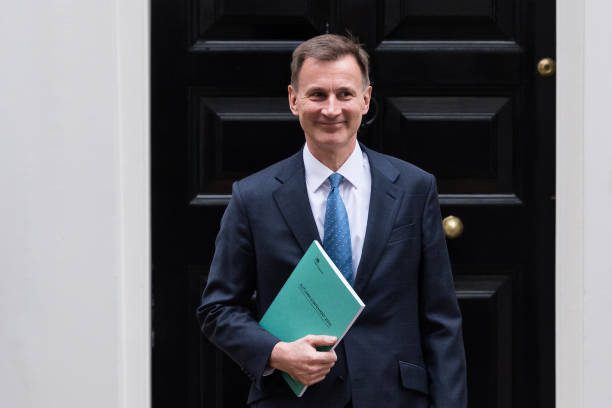GK Senior Adviser Robert Blackmore and Adviser Noureen Ahmed assess the priorities for the Conservatives and Labour in 2024 as we make our way closer to a general election.
The Tory plan to build back core support
The Conservative Party begins 2024 in dire straits, over 20 points behind Sir Keir Starmer’s Labour in the polls, they are running out of time to avoid a chastening defeat. Party leaders are therefore concentrating their efforts on ensuring they have strong support with the Party itself, while strategists desperately try to home in on the clearest path to victory, reducing illegal immigration via the Rwanda scheme, and providing tax cuts.
Much of the Government’s political capital is being spent on making its plan to send some asylum seekers to Rwanda for processing a reality. The updated Rwanda Bill has now reached the House of Lords, where intense opposition is expected. For party strategists, it provides the Conservatives with an opportunity to weaponise the debate and highlight the immigration and Brexit-related tropes that dominated the political debates in the late 2010s.
However, the political salience of the small boats issue to the wider country, as opposed to the party’s rank-and-file, is not yet clear. That is why the Party is so keen to ensure voters feel economically empowered, as the next election approaches. With the Spring Budget scheduled for 6th March, there are a number of tax cuts that Chancellor Jeremy Hunt has been considering in recent weeks, including further cuts to national insurance, cuts to income tax, and an increase in the child benefit threshold. The Chancellor, however, has been managing expectations about how feasible these may be, with the likelihood that the degree of fiscal headroom in March will be lower than expected. A fourth category, cuts to inheritance tax, is also now deemed less likely, as the Prime Minister fears it could be portrayed as a tax concession to the wealthy.
Yet, such a strategy is dependent on the electorate’s support for the Government after 13 years in power. Will they show gratitude to the Government for providing extra pounds in their pocket and vote accordingly? The tax burden is the highest it has been since the Second World War, and, according to the Resolution Foundation, wage stagnation represents a real-term decline in take home pay for many households since 2008. Given these challenges, it is not guaranteed that the Conservatives’ strategy will cut through.
It’s in the bag for Labour surely?
As the next general election looks increasingly likely for late Autumn, the Labour Party is planning to finalise any manifesto commitments by mid-February (in the unlikely scenario that the PM announces a May election). Although the Labour Party requires a significant electoral swing to claim a majority, it has been buoyed by recent polling indicating that Labour are firm favourites to lead the next government. As a result, many in Labour HQ are optimistically planning the Party’s campaign strategy.
In 2023, Labour Leader Sir Keir Starmer unveiled his 5 national missions that the party will build its manifesto around. Core missions include Labour’s ambition to support the NHS to get back on its feet and break down barriers to opportunities.
Unsurprisingly, education has remained at the forefront of Labour’s core priorities, with the Party recently unveiling its plans for schools, further education, and the early years space. The Party is determined to introduce reforms to support the development of young people and better prepare them for adulthood.
The NHS is regarded as an area of strength for the Party, with the public almost always preferring Labour’s handling of the NHS. Given the widespread awareness of ongoing crises, such as doctors’ strikes, long waiting lists and inaccessible GPs, the Party is letting the national story do the campaigning for them, with scant few serious pledges on health and social care policy. Shadow Health Secretary, Wes Streeting, has promised to work to address the fundamental issues, with promises made by the Party to boost funding investment, cut down waiting lists and improve staff recruitment.
However, further information on reforms have not been made public – many at Labour Party HQ worry that a detailed proposal may just offer the Conservative Party a “free win”, by giving it something to critique. The manifesto will shed light on where their focus may lie on health, but it’s unlikely that Labour will reveal its plans in full before taking power. Nevertheless, Labour has now started talks with the civil service and is finalising policy. We expect Labour to accelerate its campaign plans and attempt to present itself as a calming presence in contrast to the continuing Tory storms.






